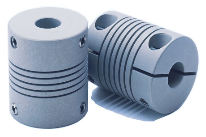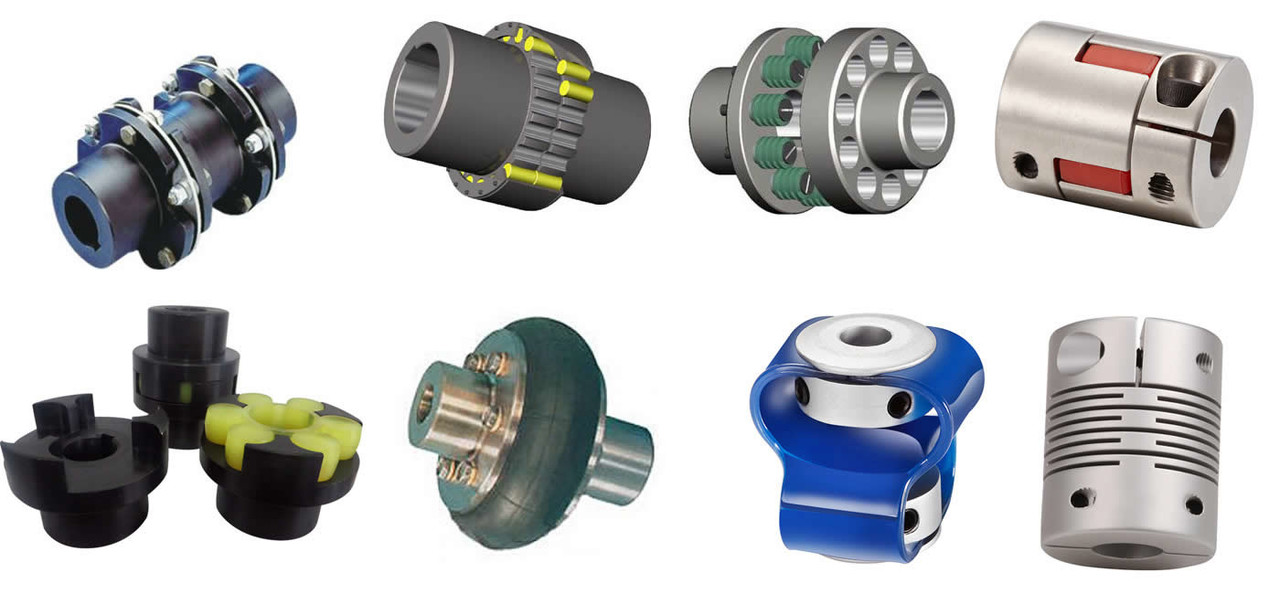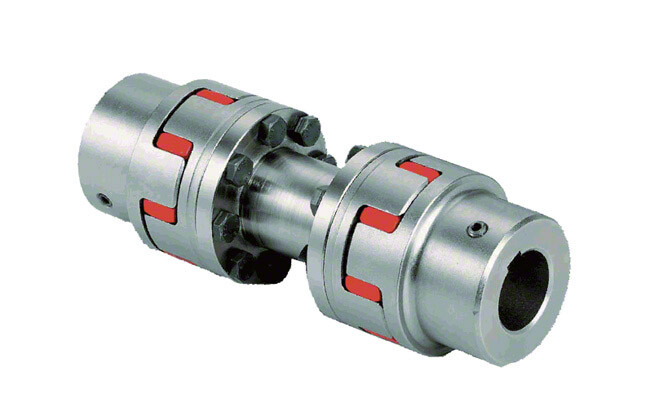Product Description
KTR Pu Spacer Spider Insert Toothed CHINAMFG 100 180 for CHINAMFG Coupling
KTR Spider T-PUR for CHINAMFG coupling:
KTR has developed a new standard material for its spiders.
The improved polyurethane material T-PUR is resistant to significantly higher temperatures and has a considerably longer service life than the previous polyurethane material.
From the visual point of view we have characterized the material T-PUR by the colours orange (92 Shore A), purple (98 Shore A) and pale green (64 Shore D).
The previous spiders made from polyurethane in yellow, red and natural white with green ends will still be available.
Up to size ROTEX 90 inclusive single spiders are used.
For ROTEX couplings from size 100 to 180 the spider consists of DZ tooth segments as a standard. The single spider will still be available in these sizes as an option.
Why an elastic coupling of Bestseal?
An elastic coupling from Bestseal is the result of decades of product development and innovation. With this, we assure you of a high-quality component with the highest possible reliability. We see ourselves as the reliable partner of anyone who wants to set things in motion.
More than 2,000 employees work passionately every day to provide you, the customer, with the best conceivable products. DIN ISO certifications are the best proof of this. A transparent and honest way of working lies at the basis of every customer relationship with us.
Would you like to learn more about our elastic couplings or answer an important product question?
Please contact our technical support department or sales department and let us inform you in detail about the various possibilities.
We will be happy to think along with you based on your wishes and make you a custom offer without any obligation.
we specialized in the development and production of sealing systems which were used in the Metallurgical,Electrical,Auto, Engineering machinery, Light industrial machinery and Electrical appliance manufacturing industries. BESEALS focus on customers’ needs,as a dependable partner and reliable supplier to help you resolve supply or technical problems ,and improve the performance of your equipments or your business. When you are facing emergency repairs situation or urgent orders,the highly responsive team of DLseals will offer you very short lead time. Beseals has a global sales network,and our seals have been sold to more than 100 countries or areas ,Such as America, England, Canada, Australia, Russian Federation ect .
FAQ
1. who are we? Are you trading company or manufacturer ?
We are manufacturer.We are based in HangZhou, China, start from 2571,sell to Domestic Market(33.00%),North America(15.00%),South America(10.00%),Western Europe(8.00%),Eastern Europe(6.00%),Souther Europe(6.00%),Southeast Asia(5.00%),Mid East(5.00%),Northern Europe(5.00%),Oceania(2.00%),South Asia(2.00%),Africa(00.00%),Eastern Asia(00.00%),Central America(00.00%). There are total about 51-100 people in our office.
2. how can we guarantee quality?
Always a pre-production sample before mass production; Always final Inspection before shipment;
3.what can you buy from us?
PTFE Seals/Oil Seals/O Rings/Rubber Seals/Plastic Seals/Mechanical Seal/O-RING/ RING Seals.
4. why should you buy from us not from other suppliers?
Beseals is a professional manufacturer of seals .Our company specializes in the production of PU, PTFE, rubber and metal sealing components
5. How long is your delivery time?
Generally it is 5-10 days if the goods are in stock. or it is 15-20 days if the goods are not in stock, it is according to quantity.
6.Do you provide samples ?
is it free or extra ? Yes, we could offer the sample for free charge but you need to pay the cost of freight.
7. what services can we provide?
Accepted Delivery Terms: FOB,CFR,CIF,EXW,FAS,CIP,FCA,Express Delivery;
Accepted Payment Currency:USD,EUR,JPY,CAD,HKD,CNY;
Accepted Payment Type: T/T,L/C,D/P D/A,MoneyGram,PayPal,Western Union,Escrow; Language
Spoken:English,Chinese,Japanese
For more information, please contact us. We look CHINAMFG to your arrival
/* January 22, 2571 19:08:37 */!function(){function s(e,r){var a,o={};try{e&&e.split(“,”).forEach(function(e,t){e&&(a=e.match(/(.*?):(.*)$/))&&1

Exploring the Use of Elastomeric Materials in Flexible Shaft Couplings
Elastomeric materials play a crucial role in the design and function of flexible shaft couplings. These materials, commonly known as elastomers, are rubber-like substances that exhibit high elasticity and flexibility. They are widely used in various types of flexible couplings due to their unique properties and benefits:
1. Damping and Vibration Absorption:
Elastomeric materials have excellent damping characteristics, meaning they can absorb and dissipate vibrations and shocks. This property is particularly useful in applications where vibration control is essential to protect sensitive equipment and improve overall system performance.
2. Misalignment Compensation:
Flexible shaft couplings with elastomeric elements can accommodate different types of misalignments, including angular, parallel, and radial misalignments. The elasticity of the material allows for limited movement between the shafts while still transmitting torque efficiently.
3. Torsional Flexibility:
Elastomers offer torsional flexibility, which allows them to twist and deform under torque loads. This feature helps to minimize torsional stresses and torsional backlash, making them suitable for applications requiring precise motion control.
4. Shock and Impact Resistance:
Due to their high resilience, elastomers can withstand sudden shocks and impacts without permanent deformation. This property makes them ideal for use in machinery subjected to varying loads or rapid changes in torque.
5. No Lubrication Requirement:
Elastomeric couplings are often maintenance-free because the elastomer material does not require additional lubrication. This reduces maintenance costs and simplifies the overall system upkeep.
6. Electric Isolation:
In certain applications, elastomeric materials can provide electrical isolation between the driving and driven components. This can help prevent the transmission of electrical currents or static charges through the coupling.
7. Corrosion Resistance:
Many elastomers used in couplings are resistant to corrosion, making them suitable for use in challenging environments where exposure to chemicals or moisture is a concern.
8. Easy Installation:
Elastomeric couplings are often designed for ease of installation and replacement. Their flexibility allows for simple and quick assembly onto the shafts without the need for special tools or complex procedures.
Given these advantages, elastomeric materials are popular choices for various flexible shaft couplings, including jaw couplings, tire couplings, and spider couplings. However, it is essential to select the right elastomer material based on the specific application requirements, such as temperature range, chemical compatibility, and torque capacity.
“`
Temperature and Speed Limits for Different Shaft Coupling Types
The temperature and speed limits of shaft couplings vary depending on the materials and design of the coupling. Manufacturers provide specific guidelines and ratings for each coupling type. Below are general temperature and speed limits for some common shaft coupling types:
1. Elastomeric Couplings:
Elastomeric couplings, such as jaw couplings and tire couplings, typically have temperature limits ranging from -40°C to 100°C (-40°F to 212°F). The speed limits for elastomeric couplings are generally up to 5,000 RPM, but some designs may allow higher speeds.
2. Metallic Couplings:
Metallic couplings, like gear couplings and disc couplings, can handle a wider temperature range, typically from -50°C to 200°C (-58°F to 392°F). The speed limits for metallic couplings vary based on the size and design, but they can range from 3,000 RPM to over 10,000 RPM.
3. Grid Couplings:
Grid couplings have temperature limits similar to metallic couplings, ranging from -50°C to 200°C (-58°F to 392°F). The speed limits for grid couplings are typically in the range of 3,000 to 5,000 RPM.
4. Oldham Couplings:
Oldham couplings usually have temperature limits from -30°C to 100°C (-22°F to 212°F) and speed limits ranging from 1,000 to 5,000 RPM.
5. Beam Couplings:
Beam couplings generally have temperature limits from -40°C to 120°C (-40°F to 248°F) and speed limits between 5,000 to 10,000 RPM.
6. Fluid Couplings:
Fluid couplings are suitable for a wide range of temperatures, often from -50°C to 300°C (-58°F to 572°F). The speed limits depend on the size and design of the fluid coupling but can extend to several thousand RPM.
It’s important to note that these are general guidelines, and the actual temperature and speed limits may vary based on the specific coupling manufacturer, material quality, and application requirements. Always refer to the manufacturer’s documentation and technical specifications for accurate and up-to-date temperature and speed limits for a particular shaft coupling model.
“`
What is a Shaft Coupling and Its Role in Mechanical Power Transmission?
A shaft coupling is a mechanical device used to connect two shafts together at their ends, allowing for the transmission of mechanical power from one shaft to another. It serves as an essential component in various machinery and industrial applications where rotational motion needs to be transmitted between two shafts that are not perfectly aligned or are separated by a distance.
The role of a shaft coupling in mechanical power transmission includes the following:
1. Power Transmission:
The primary function of a shaft coupling is to transmit power from a driving shaft to a driven shaft. When the driving shaft rotates, the coupling transfers the rotational motion to the driven shaft, enabling the driven equipment to perform its intended function.
2. Misalignment Compensation:
In real-world applications, it is often challenging to achieve perfect alignment between two shafts due to manufacturing tolerances or dynamic conditions. Shaft couplings are designed to accommodate different types of misalignment, such as angular, parallel, and axial misalignment, allowing the equipment to function smoothly even when the shafts are not perfectly aligned.
3. Vibration Damping:
Shaft couplings can help dampen vibrations and shocks caused by uneven loads or sudden changes in the operating conditions. This vibration damping feature protects the connected components from damage and contributes to the overall system’s reliability.
4. Overload Protection:
In some cases, a shaft coupling can act as a safety device by providing overload protection. When the connected machinery experiences excessive torque or shock loads, certain types of couplings can disengage or shear to prevent damage to the equipment.
5. Torque and Speed Conversion:
Shaft couplings can be designed to provide torque and speed conversion between the driving and driven shafts. This allows for adaptation to different operating conditions and varying torque requirements in the connected machinery.
6. Flexible Connection:
Shaft couplings with flexible elements, such as elastomeric inserts or flexible discs, provide a flexible connection that can absorb shocks and misalignments. This flexibility helps reduce stress on the connected equipment and extends its lifespan.
Overall, shaft couplings are essential components in mechanical power transmission systems, enabling the efficient transfer of rotational motion between shafts while accommodating misalignments and providing protection against overloads and vibrations. The selection of the appropriate coupling type and design depends on the specific requirements of the application, including the type of misalignment, torque capacity, and operating conditions.
“`

editor by CX 2024-04-17
by
Leave a Reply